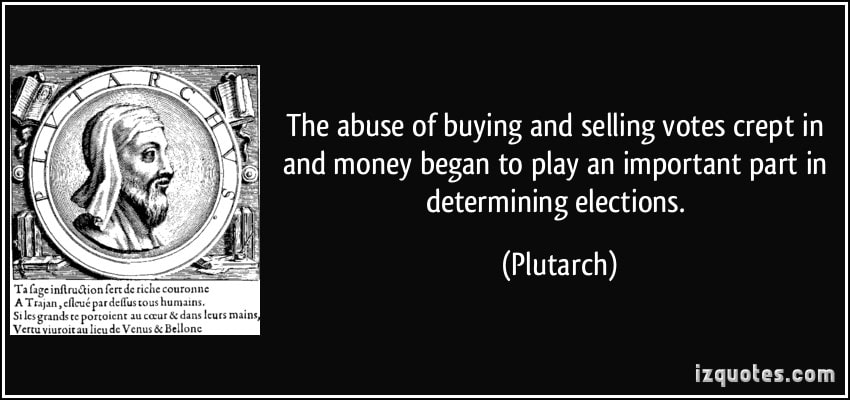
Explaining Super PACs and PACs, Gerrymandering and other Voter Suppression, the top 20 spenders.
Plutarch, Greek philosopher, and historian, 46-120 AD, Middle Platonist known for his Parallel Lives and Moralia.
Money’s influence on U.S. elections and public policy.
The Center for Responsive Politics projects that more than $5 billion will be spent during the 2018 election, making it by far the costliest congressional election cycle in U.S. history.
“We expected to see the numbers climb, as they typically do, but the astonishing spike in campaign donations is a solid indicator of the intensity driving this year’s campaigns,” said Sheila Krumholz, executive director of the Center for Responsive Politics.
The 2016 election was the most expensive congressional election, with just over $4 billion spent for House and Senate candidates in total. Only two congressional election cycles have surpassed the $4 billion mark — 2016 and 2010 — when adjusted for inflation.
More than $3.7 billion has already been spent on the 2018 election, including money spent by candidates, parties, committees, PACs and outside groups, for the purpose of the election.
Democratic candidates have a huge lead in spending over Republicans, having shelled out more than $1 billion to Republican candidates’ $720 million. Democrats have raised more than $1.3 billion from individual donors — compared to just under $1 billion for Republicans — as Democratic challengers have raised large masses of funds through small donors.
Republicans are leading in the outside money department, having benefited from approximately $343 million in outside spending compared to $248 million for Democrats. Outside spending, overall, is projected to be the highest-ever for a midterm election. More than $628 million has been spent by outside groups so far, compared to $421 million at this point in 2014.
The term “outside spending” refers to political expenditures made by groups or individuals independently of, and not coordinated with, candidates’ committees. Groups in this category range from conventional party committees to the more controversial super PACs and 501(c) “dark money” organizations.
Utilizing historical spending growth data from the third quarter on, CRP’s model projects the total amount spent in the 2018 election will reach approximately $5.2 billion. CRP projects Democrats will spend nearly $300 million more than Republicans — $2.5 billion to $2.2 billion. If current trends continue, Blue will outspend Red for the first time in 10 years.
Political spending has leaped by 35% since the 2014 midterms, according to the Center for Responsive Politics (CRP). The center has found that individual political donations account for the majority of campaign cash across the board: they comprise about 71% of donations to Senate races for both Republicans and Democrats and about 61% of donations to House candidates.
While political donations can come in all shapes and sizes – from large to small – it’s the big-ticket players who have an outsized influence in shaping elections and, in turn, public policy.
“Donors get their phone calls answered, is one way of thinking about it,” says Ian Vandewalker, a senior counsel at the Brennan Center for Justice. “We like to think of our democracy as being one person, one vote – the majority rules. But just being rich and being able to write million-dollar checks gets you to influence over elected officials that are far greater than the average person.”
What Are Super PACs?
Super PACs are a relatively new type of committee that arose following the July 2010 federal court decision in a case known as SpeechNow.org v. Federal Election Commission.
Technically known as independent expenditure-only committees, super PACs may raise unlimited sums of money from corporations, unions, associations, and individuals, then spend unlimited sums to overtly advocate for or against political candidates. Unlike traditional PACs, super PACs are prohibited from donating money directly to political candidates, and their spending must not be coordinated with that of the candidates they benefit. Super PACs are required to report their donors to the Federal Election Commission on a monthly or semiannual basis – the super PAC’s choice – in off-years, and monthly in the year of an election.
As of November 05, 2018, 2,224 groups organized as super PACs have reported total receipts of $1,309,631,916 and total independent expenditures of $813,503,643 in the 2018 cycle.
https://www.opensecrets.org/pacs/superpacs.php
What Is Gerrymandering?
Gerrymandering is a practice intended to establish a political advantage for a particular party or group by manipulating district boundaries. The resulting district is known as a gerrymander; however, that word is also a verb for the process. The term gerrymandering has negative connotations. Wikipedia
Origin early 19th century: from the name of Governor Elbridge Gerry of Massachusetts + salamander, from the supposed similarity between a salamander and the shape of a new voting district on a map drawn when he was in office (1812), the creation of which was felt to favour his party; the map (with claws, wings, and fangs added) was published in the Boston Weekly Messenger, with the title The Gerry-Mander .
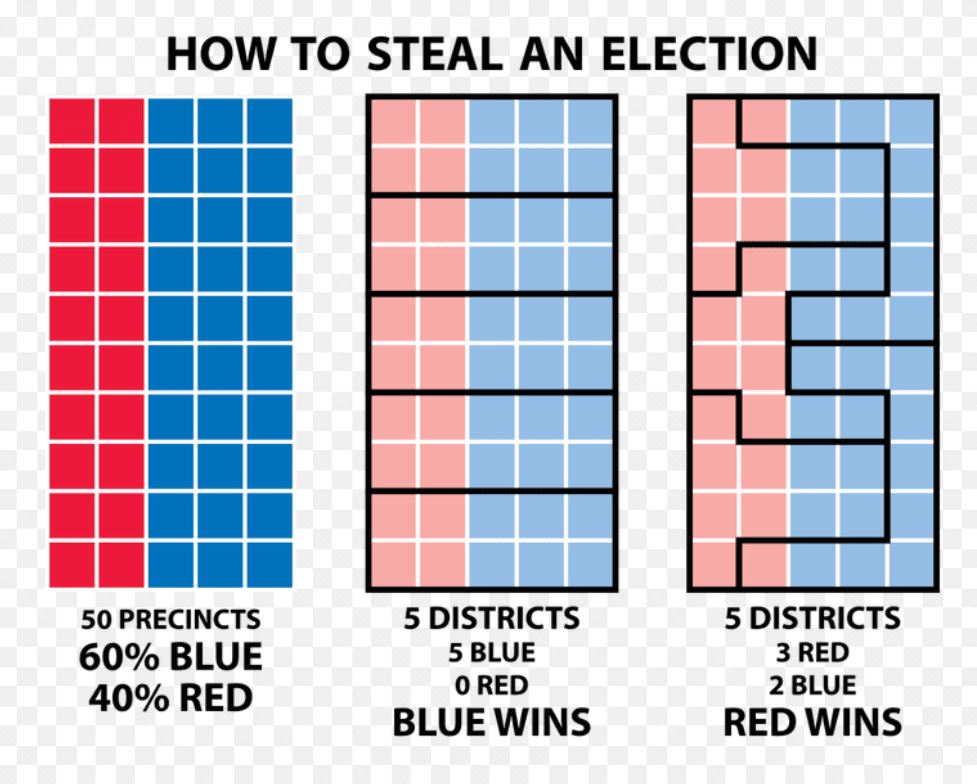
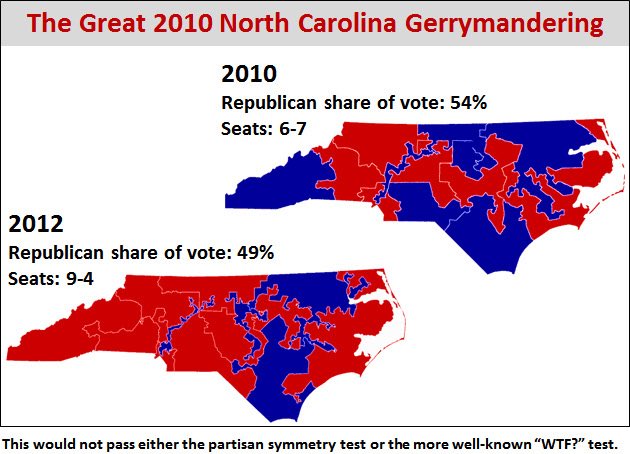
Can Political Parties Stop You From Voting?
So who are the biggest givers?
“Overwhelmingly, the cast of characters is a familiar one going back years and in some cases, decades,” says Sheila Krumholz, the executive director of the CRP, of the 2018 midterms. This includes figures such as the Las Vegas casino magnate Sheldon Adelson and the progressive mega-donor George Soros – but many names may be unfamiliar to the average voter.
The following individuals have given millions on the record, but many of them have also probably given an unknown amount of “dark money” to organizations that can avoid disclosure due to a complex regulatory situation and murky definitions of “political” activity. As of 1 November, five days before the election, here are the top 20 spenders, and what we know about where their money went:
1. Sheldon and Miriam Adelson, $113m
Net worth: $31bn
Politics: Conservative
Bio in brief: Sheldon Adelson is the head of an international casino empire, the Las Vegas Sands, and owner of the Las Vegas Review-Journal newspaper. He was the largest individual donor to the 2016 Trump campaign and to Trump’s inauguration fund.
Midterms behavior: The largest recipients of Adelson’s donations are the Congressional Leadership Fund and the Senate Leadership Fund, both Super Pacs dedicated to electing Republicans. He gave $25m to each.
2. Thomas Steyer and Kathryn Taylor, $50.7m
Net worth: 1.6bn
Politics: Liberal
Bio in brief: Steyer, a former hedge fund manager, has focused on political and environmental activism since he retired in 2012. Heavily involved in Democratic activism and fundraising for decades, he’s been called the progressive’s answer to the Koch brothers.
Midterms behavior: The largest single recipient of Steyer’s donations is his own Pac, NextGen Climate Action, which supports candidates and causes that work to combat climate change. He has given it about $41m so far.
3. Richard and Elizabeth Uihlein, $39m
Net worth: Unknown
Politics: Conservative
Bio in brief: Founders of a successful shipping supply company, Uline, the Uihleins are “the most powerful conservative couple you’ve never heard of”, according to the New York Times. The Uihleins have been supporting conservative causes for years but have only recently received national attention.
Midterms behavior: They’ve given at least $6.7m to the Club for Growth Action, a Super Pac dedicated to supporting the anti-big government and “pro-growth” candidates, and at least $8m to Restoration Pac, a Super Pac with a wide range of politically conservative stances. They also give heavily to candidates and causes in their home state of Wisconsin.
4. Michael Bloomberg, $38m
Net worth: $46.1bn
Politics: Liberal
Bio in brief: Michael Bloomberg is a billionaire businessman and the former mayor of New York City. Despite being a lifelong Democrat, Bloomberg ran for mayor as a Republican in 2001 and then left the Republican party in 2007. He is often seen as a fiscally conservative, socially liberal centrist.
Midterms behavior: He has given at least $20m this cycle to Senate Majority Pac, which supports putting Democrats in the Senate, and more than $7m to his own Super Pac, Independence USA Pac, which focuses on gun laws, the environment and education policy.
5. Donald Sussman, $22.8m
Net worth: Unknown
Politics: Liberal
Bio in brief: Sussman’s hedge fund, Paloma Partners, was the top contributor to Hillary Clinton’s campaign with $21.6m, and he has given millions more to Democratic candidates and causes over the last few decades.
Midterms behavior: Sussman has made major donations to Senate Majority Pac, House Majority Pac and Priorities USA Action – all Super Pacs supporting Democratic candidates and causes.
6. James Simons, $18.9m
Net worth: $20bn
Politics: Liberal
Bio in brief: “Jim” Simons is yet another hedge fund billionaire and a former mathematician. He founded Renaissance Technologies, from which he retired in 2010. He has been a major Democratic donor for about the last two decades.
Midterms behavior: This cycle, some of Simons’ biggest donations have gone to the Senate Majority Pac and the House Majority Pac.
7. George Soros, $17m
Net worth: $8.3bn
Politics: Liberal
Bio in brief: George Soros, one of the most well-known names in the world of Democratic political funders, is an investor and hedge fund manager originally from Hungary. He donates to various causes through his foundation, the Open Society Foundation. He has been demonized by Donald Trump and his supporters.
Midterms behavior: Soros has given millions this cycle to Win Justice Pac, a Super Pac started by a coalition of progressive groups: Planned Parenthood Votes, Center for Community Change Action, Color of Chance PAC and the Service Employees International Union (SEIU). He has given large amounts to Priorities USA Action and Senate Majority PAC.
8. Stephen and Christine Schwarzman, $12.8m
Net worth: $13bn
Politics: Conservative
Bio in brief: Stephen Schwarzman is the founder and CEO of Blackstone Group, an investment company. He is closely connected to the Trump administration, and has been a supporter of conservative causes for about the last decade.
Midterms behavior: Schwarzman has given $8m to the Senate Leadership Fund, a Republican Super Pac aimed at maintaining the Republican majority in the Senate.
9. Fred Eychaner, $12m
Net worth: Unknown, but estimated to be at least $500m.
Politics: Liberal
Bio in brief: Fred Eychaner is a Chicago media entrepreneur and chairman of Newsweb, a company that owns several newspapers and radio stations. He avoids the spotlight more than many big donors, but has been a prominent Democratic funder for about the past decade.
Midterms behavior: This cycle, he has given millions to the Senate Majority Pac and House Majority Pac.
10. Kenneth and Anne Griffin, $11m
Net worth: About $9.9bn
Politics: Conservative
Bio in brief: Kenneth Griffin is the founder and CEO of Citadel, a hedge fund in Chicago. He is active in art philanthropy and is an avid collector, and has been supporting Republican candidates and causes for about the last decade.
Midterm behavior: This cycle, he has given at least $2.5m to the Congressional Leadership Fund.
11. Jeff and MacKenzie Bezos, $10.1m
Net worth: $134bn
Politics: Non-partisan
Bio in brief: The Amazon CEO has been designated the “richest person in modern history” by Forbes. Despite his high profile and his enormous wealth, Bezos had not participated heavily in politics before the 2018 midterms. Bezos’s ownership of the Washington Post has made him a frequent target of Trump.
Midterms behavior: Almost all of Bezos’s contributions this cycle went to a non-partisan Pac called the With Honor Fund, which is dedicated to getting veterans elected and working towards a “less polarized government”. He also gave $5,400 to his senator, Maria Cantwell, a Democrat from Washington state. His wife, MacKenzie Bezos, has a longer history of small donations to candidates and Pacs.
12. Timothy Mellon, $10m
Net worth: About $1bn
Politics: Conservative
Bio in brief: Timothy Mellon is the grandson of Andrew Mellon, an entrepreneur at the turn of the 20th century and member of the renowned Mellon family, associated with Carnegie Mellon University in Pittsburgh. Timothy avoids the public eye and runs a transportation company based in New Hampshire.
Midterms behavior: Almost all of his contributions in the midterms – $10m – are to the conservative Congressional Leadership Fund Pac, but he has also given several small donations to Republican candidates, and one puzzling donation of $2,700 to Alexandria Ocasio-Cortez, the surprise 29-year-old Democratic congressional candidate from the Bronx.
13. Deborah Simon, $8.9m
Net worth: Exact net worth is unknown, but Forbes estimated the entire Simon family’s wealth at $7.7bn in 2015
Politics: Liberal
Bio in brief: Deborah Simon is an heir to a shopping mall fortune made by her father, Melvin Simon, who is deceased. She lives in Indiana and has spent most of her career working at the family company, Simon Property Group. She is known locally for her involvement in progressive politics.
Midterms behavior: Some of her largest donations this cycle have gone to the liberal Senate Majority Pac and House Majority Pac funds, and Planned Parenthood Votes.
14. Reid Hoffman, $8.1m
Net worth: About $1.8bn
Politics: Liberal
Bio in brief: Reid Hoffman is best known as the co-founder of LinkedIn, which he helped start after being an executive at PayPal in its early days. He has been one of the more politically active and outspoken members of Silicon Valley’s tech community.
Midterms behavior: His largest donations this cycle have gone to the Senate Majority Pac and House Majority Pac, about $5m combined. He has also given $1m to Forward Majority Action Pac, a fund dedicated to helping Democrats gain majorities in state legislatures. He also gave $10,000 to the Republican party of Massachusetts, and several donations to candidates.
15. George and Judith Marcus, $8.1m
Net worth: $1.4bn
Politics: Liberal
Bio in brief: George Marcus co-founded a San Francisco-based real estate firm. Despite having been a significant Democratic donor for decades, he has kept a relatively low profile.
Midterms behavior: For the midterms cycle, the bulk of his giving – at least $6.5m – has gone to the Senate Majority Pac and House Majority Pac, along with several small donations to candidates from him and his wife.
16. Bernard and Billi Wilma Marcus, $7.9m
Net worth: $5.1bn
Politics: Conservative
Bio in brief: Bernard Marcus is the co-founder and former CEO of Home Depot. Retired since 2002, he has been an active philanthropist, donating millions to scientific and medical research. He and his wife were major donors to Trump’s election efforts with $7m.
Midterms behavior: The couple has given $4m to the conservative Senate Leadership Fund Pac this cycle, along with several other significant donations to Republican Pacs, candidate and party committees.
17. Charles and Helen Schwab, $7.2m
Net worth: $8.8bn
Politics: Conservative
Bio in brief: Charles Schwab is a financier and highly recognized figure, due to the investment brokerage he founded with his name. He retired as CEO of the company in 2008.
Midterms behavior: Schwab’s giving this cycle is made up of several (relatively) small periodic contributions to Republican party committees and Pacs, and donations to Republican candidates.
18. Karla Jurvetson, $7m
Net worth: $8.8bn
Politics: Liberal
Bio in brief: Karla Jurvetson is a psychiatrist in Silicon Valley, and the wife of Steve Jurvetson, a well-known venture capitalist.
Midterms behavior: Karla’s largest donation, of $5.4m, went to Women Vote!, a Super Pac run by the organization Emily’s List, dedicated to electing pro-choice female candidates.
19. Paul Skjodt and Cynthia Simon Skjodt, $6.6m
Net worth: Exact net worth is unknown, but Forbes estimated the entire Simon family’s wealth at $7.7bn in 2015
Politics: Liberal
Bio in brief: Cynthia Simon Skjodt is the sister of Deborah Simon, and also an heir to the family’s shopping mall fortune, created by their father, Melvin. She has been an active philanthropist in Indiana, and serves on several boards.
Midterms behavior: She and her husband’s largest donations this cycle are to the House Majority Pac and Senate Majority Pac, with several smaller donations to Democratic party committees and candidates.
20. Ronald and Nina Cameron, $6.5m
Net worth: Unknown
Politics: Conservative
Bio in brief: Ronald Cameron lives in Arkansas and owns and runs the seventh-largest poultry company in the country, Mountaire Farms, which was founded by his grandfather.
Midterms behavior: In the 2014 midterm cycle, Mountaire was the largest corporate donor to the Koch brothers’ Super Pac, Freedom Partners Action Fund, and he was a big supporter of Mike Huckabee in the 2016 primaries. This cycle, he and his wife have given heavily – at least $3m – to another Koch brothers Pac, Americans for Prosperity Action. They also gave $1m to the conservative Congressional Leadership Fund.

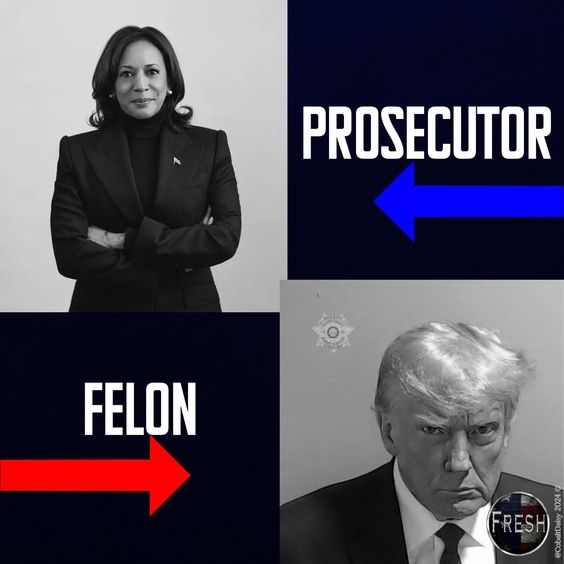
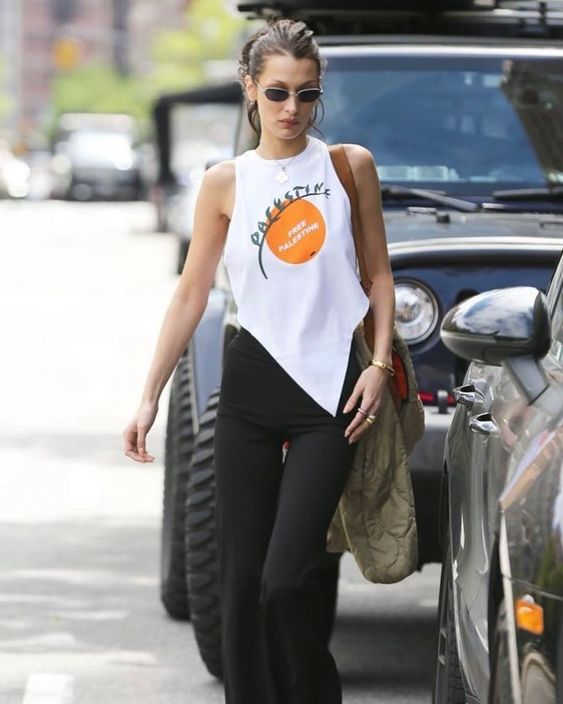

38 Comments
Pingback: Making it easier to vote does not threaten election integrity - Bergensia
Pingback: hydroxychloroquine study success
Pingback: where to buy hydroxychloroquine
Pingback: dosing hydroxychloroquine for covid
Pingback: hydroxychloroquine treatment updates
Pingback: side effects for ivermectil
Pingback: how many priligy daily
Pingback: Brand ivermectin usa
Pingback: plaquenil and antimalaria potassium 875
Pingback: deltasone 1000 mg
Pingback: ivermectin 6 price in india
Pingback: stomach pain after finishing antiparasitic
Pingback: where to buy ivermectin online without rx
Pingback: stromectol 3mg
Pingback: where to buy ivermectin
Pingback: treat mosquito infestations 125mg
Pingback: ivermectin for cancer treatment
Pingback: price for cialis 5mg
Pingback: 150 mg clomid success rates
Pingback: ivermectin toxicity in humans
Pingback: is ivermectin safe
Pingback: ivermectin dose for children
Pingback: purchasing viagra
Pingback: sildenafil in usa
Pingback: dui for prescription drugs
Pingback: tadalafil prescription
Pingback: hydroxychloroquine 200mg for sale online
Pingback: over the counter male viagra canada
Pingback: stromectol for sale on amazon
Pingback: tadalafil generic best price
Pingback: how can you get viagra over the counter
Pingback: America's Bigliest Loser - Bergensia
Pingback: How this cycle of redistricting is making gerrymandered congressional districts even safer and undermining majority rule - Bergensia
Pingback: ruby carts
Pingback: lottovip
Pingback: โคมไฟ
Pingback: New Construction
Pingback: รับจํานํารถ